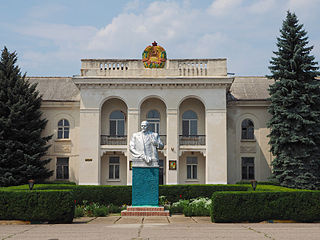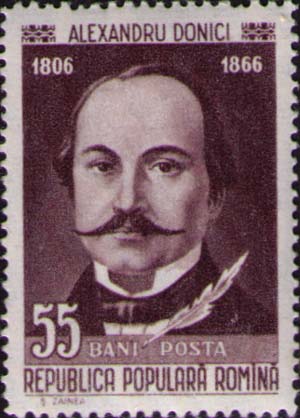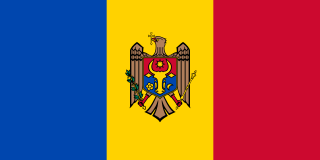Related Research Articles

Bessarabia is a historical region in Eastern Europe, bounded by the Dniester river on the east and the Prut river on the west. About two thirds of Bessarabia lies within modern-day Moldova, with the Ukrainian Budjak region covering the southern coastal region and part of the Ukrainian Chernivtsi Oblast covering a small area in the north.

The culture of Moldova is unique and influenced by the Romanian origins of its majority population, as well as the Slavic and minority Gagauz populations. The traditional Latin origins of Romanian culture reach back to the 2nd century, the period of Roman colonization in Dacia.

Dubăsari or Dubossary is a city in Transnistria, with a population of 23,650. Claimed by both the Republic of Moldova and the Transnistrian Moldavian Republic, the city is under the latter's administration, and functions as the seat of the Dubăsari District.

Moldovans, sometimes referred to as Moldavians, are a Romanian-speaking ethnic group and the largest ethnic group of the Republic of Moldova and a significant minority in Ukraine and Russia. There is an ongoing controversy, in part involving the linguisitic definition of ethnicity, over whether Moldovans' self-identification constitutes an ethnic group distinct and separate from Romanians, or a subset. The extent of self-identification as Romanians in the Republic of Moldova varies.

AlecuDonici was a Moldavian, later Romanian poet and translator.

Moldovenism is a political term used to refer to the support and promotion of the Moldovan identity and Moldovan culture primarily by the opponents of such ideas.
Codreanu is a Romanian surname. Notable people with the surname include:
Ion is a masculine given name. The written form corresponds to two names that are different and unrelated in origin.
The male name Vasile is of Greek origin and means "King". Vasile is a male Romanian given name or a surname. It is equivalent to the English name Basil. It is also used by the Megleno-Romanians.
Nicolae is an Aromanian and Romanian masculine given name or surname, the equivalent of the English Nicholas. In Romanian, its feminine form is Nicoleta.

A controversy exists over the national identity and name of the native language of the main ethnic group in Moldova. The issue more frequently disputed is whether Moldovans constitute a subgroup of Romanians or a separate ethnic group. While there is wide agreement about the existence of a common language, the controversy persists about the use of the term "Moldovan language" in certain political contexts.
Moldovan and Moldavian refer to something of, from, or related to Moldova or Moldavia. In particular, it may refer to:
Creangă is a surname common in Romania and Moldova. Used alone, it may refer to any of the following:
The National Moldavian Party was a political party in Bessarabia.
Ciobanu is a Romanian surname, common in Romania and Moldova. Notable persons with the surname include:

Lupu is a surname of Romanian origin, derived from the Romanian word lup ("wolf"), from Latin lupus ("wolf"). Its Italian equivalent is Lupo, its French equivalent is Loup, its Spanish equivalent is López, and its Portuguese equivalent is Lopes or Lopo.

Literature of Moldova comprises the literature of the principality of Moldavia, the later trans-Prut Moldavia, Bessarabia, the Moldavian Autonomous Soviet Socialist Republic, the Moldavian Soviet Socialist Republic, and the modern Republic of Moldova, irrespective of the language. Although there has been considerable controversy over linguistic identity in Moldova, the Moldovan and Romanian languages are virtually identical and share a common literary history. Moldovan literature, therefore, has considerable overlap with Romanian literature.
Grosu or Grossu is a Romanian surname that may refer to:
Covali is the Romanian form of the name Kowal, meaning "forger" or "blacksmith" in Slavic languages. The surname may refer to:

Greater Moldova or Greater Moldavia is an irredentist concept today used for the credence that the Republic of Moldova should be expanded with lands that used to belong to the Principality of Moldavia or were once inside its political orbit. Historically, it also meant the unification of the lands of the former principality under either Romania or the Soviet Union. Territories cited in such proposals always include Western Moldavia and the whole of Bessarabia, as well as Bukovina and the Hertsa region; some versions also feature parts of Transylvania, while still others include areas of Podolia, or Pokuttia in its entirety. In its most post-Soviet iterations, "Greater Moldova" is associated with a belief that Moldovans are a distinct people from Romanians, and that they inhabit parts of Romania and Ukraine. It is a marginal position within the Moldovan identity disputes, corresponding to radical forms of an ideology polemically known as "Moldovenism".